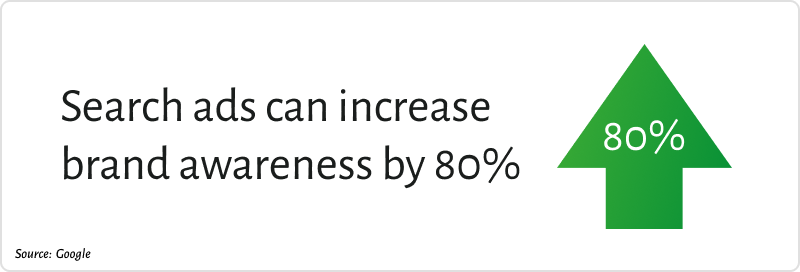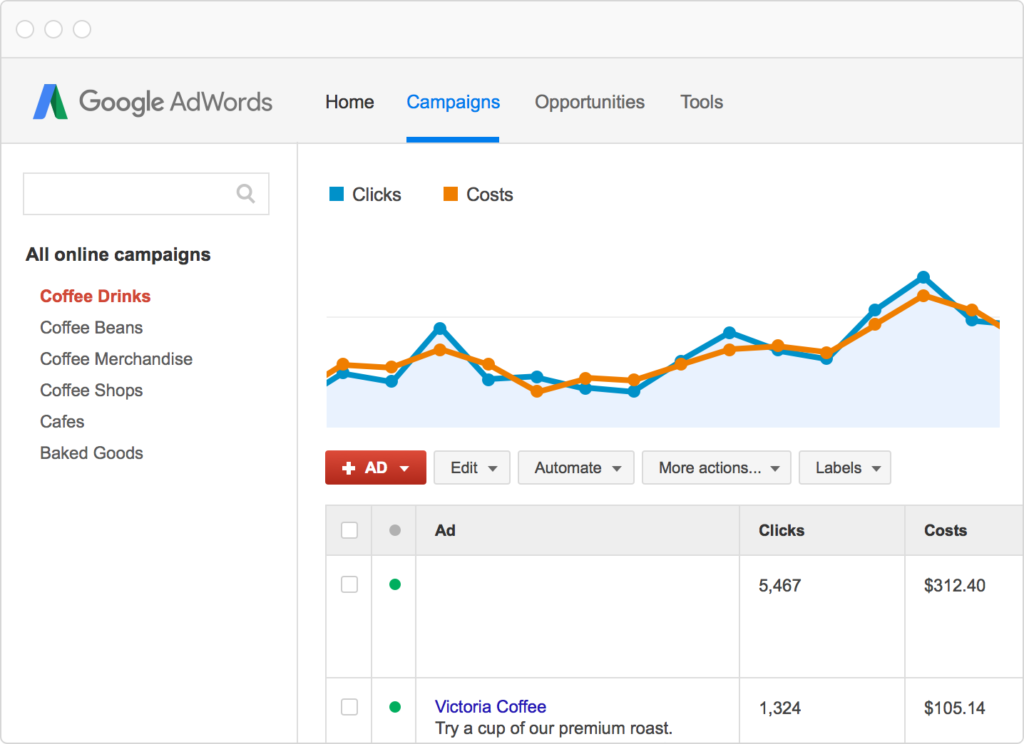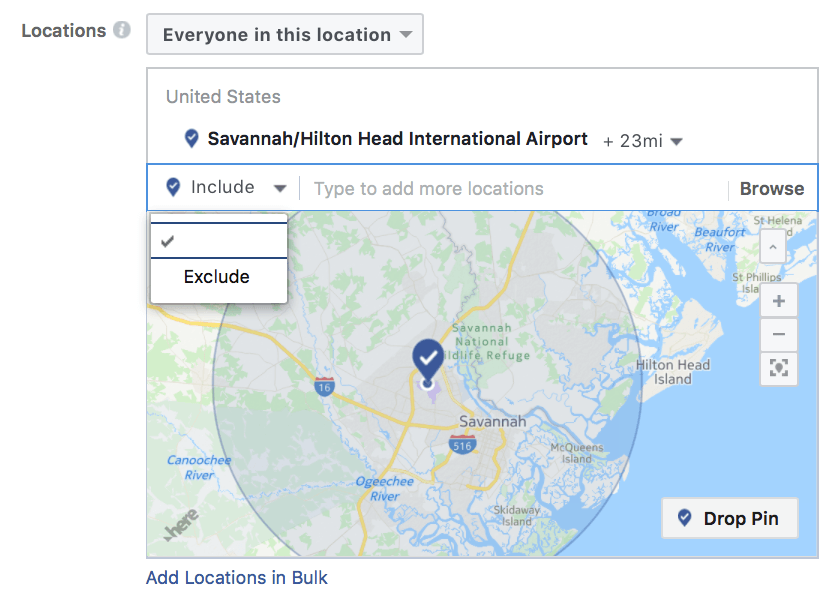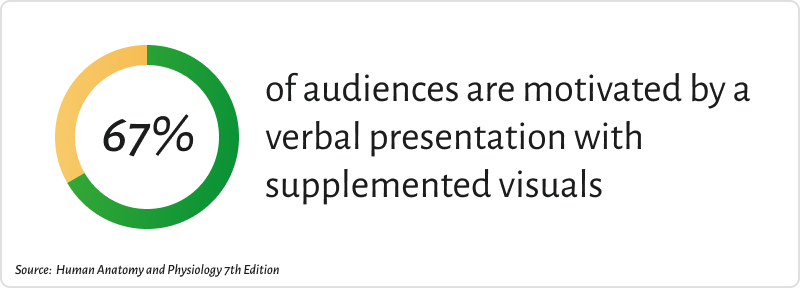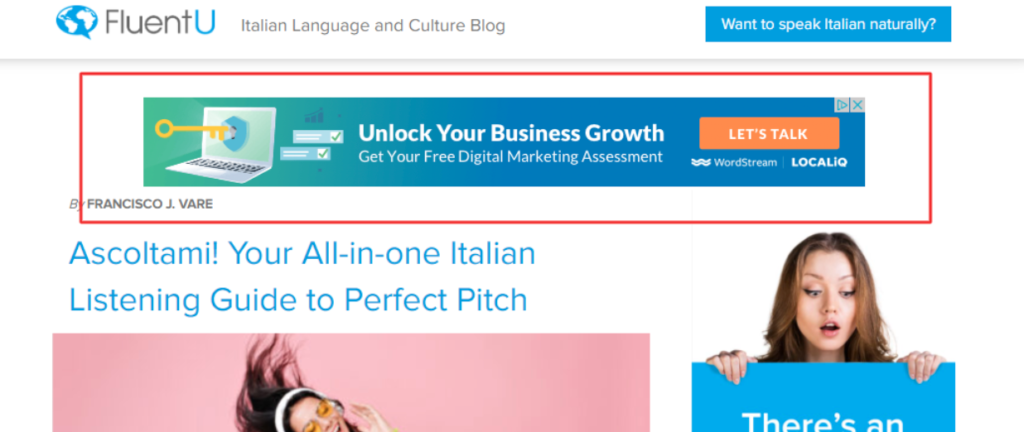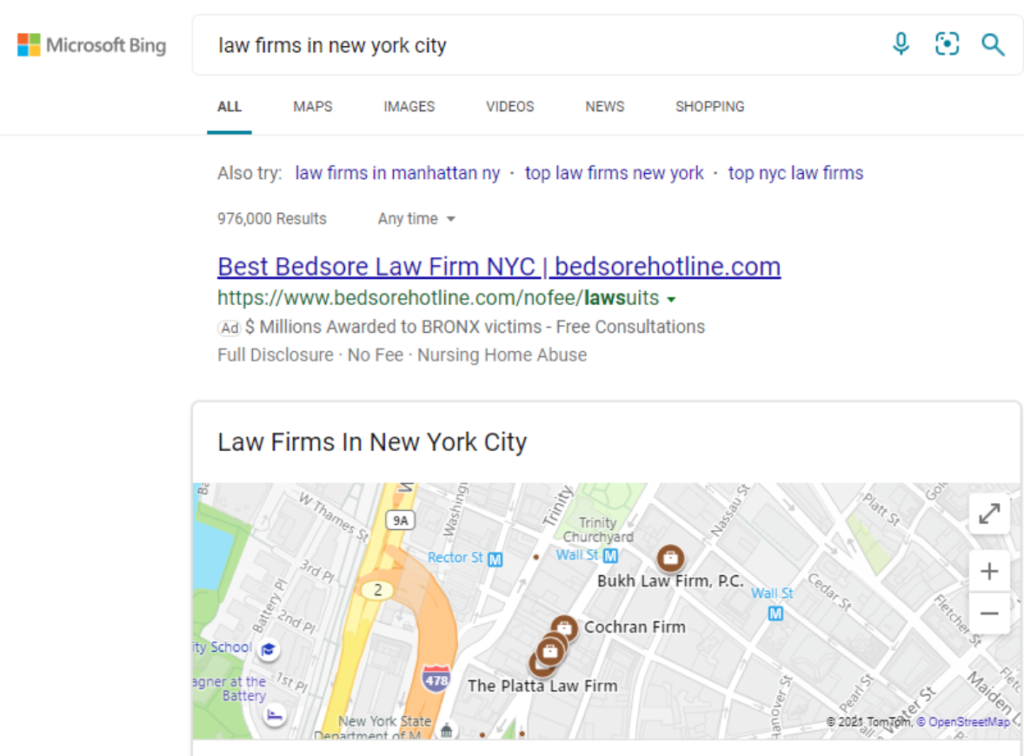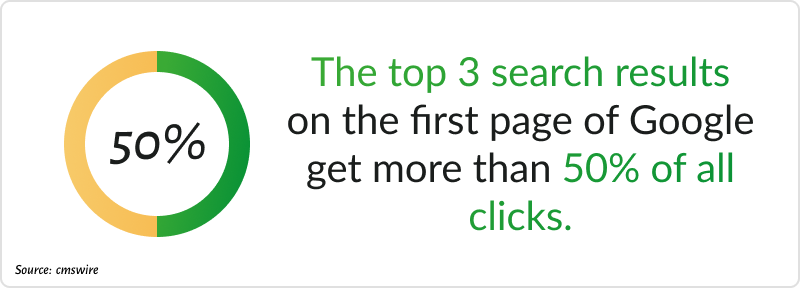According to Smart Insights, 96% of legal clients seek legal advice online. SEO Tribunal also reports that, on average, 46% of ad clicks result from legal service queries on Google.
Lawyers can use pay-per-click (PPC) strategies to expand their clientele quickly while waiting for results from word-of-mouth or SEO.
I’ll walk you through PPC strategies you can use to complement your SEO marketing, get ahead of your competition, and attract more high-quality leads.
- What Is PPC and Why Should Lawyers Use It?
- Difference Between Campaigns, Ad Groups, and Ads
- 9 Must-try Law Firm PPC Strategies to Succeed in Online Legal Marketing
- 1. Use Market Research to Set Yourself Apart
- 2. Use Geo-targeting Correctly
- 3. Target User Intent with Your Ads
- 4. Fill Your Landing Pages with Videos (and Other Visuals)
- 5. Use Display Ads
- 6. Run A/B Tests on Your Ads
- 7. Don’t Abandon Search Engines Like Bing
- 8. Write Quality Ad Content and a Strong CTA
- 9. Optimize Your Copy for Keywords and SEO
- How to Rank Your Law Firm’s Website Higher with SEO
- Law Firm PPC Can Bring You Leads, Conversions, and SEM Success
What is PPC and Why Should Lawyers Use It?
PPC refers to pay-per-click, an internet marketing technique that requires you to pay a specific fee each time someone clicks on your advertisement.
Simply put, PPC is a way to buy traffic to your law firm website.
Here’s an example of how PPC works: Someone types “personal injury lawyer” into their search engine and (because you’ve targeted the right keywords) your ad appears at the top of the search engine results page.
Your ad gets clicked, you pay a small fee for that click, and you (hopefully) land a new client in the exchange.
Here’s the short version of why I think investing in PPC for your law firm might be worth it:
- It’s Cost-Effective. With PPC advertising, you control your budget, ad placements, and targeting. You only pay when someone clicks your ad.
- It Drives Warm Leads. PPC allows you to reach your target audience when they’re actively searching for legal services like yours online.
- Easy Monitoring and Improvement. You can easily monitor and tweak your PPC ad campaign to get a positive investment return.
- Multi-Layered Targeting Options. You can target everything from your audience’s age to their location and interests.
- Allows for Smart Retargeting. You can monitor how your target audience reacted to your ads, see those who didn’t convert, and retarget them.
- Increases Brand Awareness. Google says that search ads can increase brand awareness by 80%.
Difference Between Campaigns, Ad Groups, and Ads
Before we get into the nitty-gritty, let’s review some standard marketing terms:
- A campaign is a top-level category that allows you to choose your ad goal.
- An ad group is the second level that will enable you to decide what audience you want your ads to target.
- An ad refers to all the creative elements involved, including the ad copy, visuals, and links.
Example of an ad campaign. Source: WordStream
9 Must-Try Law Firm PPC Strategies to Succeed in Online Legal Marketing
Ready to get tactical? Here are 9 approaches to PPC that will bring you an influx of new clients:
1. Use Market Research to Set Yourself Apart
Market research enables you to analyze your target audience’s characteristics so you can meet their specific needs.
Here’s what you should look for:
- Size – Quantify the number of businesses and individuals who make up your target audience.
- Demographics – Identify your target audience’s average age, marital status, educational background, and other details.
- Location – Determine if the location you want to target has enough potential legal clients to be worth it.
- Income – Make sure that you are targeting an audience that can afford your services.
- Purchasing Habits – Analyze your target audience’s purchasing behavior to predict how much they spend on legal services and how often.
Consider hiring an SEO specialist to help you analyze your market and the keywords that will win their clicks.
2. Use Geo-Targeting Correctly
Geo-targeting (location-based targeting) uses specific locations to direct your PPC ads.
The advantage of geo-targeting is that nearly every advertising platform (Facebook, Google Ads, LinkedIn, Microsoft Ads, etc.) allows you to use the following components to identify your market’s location:
- IP address
- Cell tower IDs
- Wi-Fi
- Bluetooth
- Phone GPS
Google will also allow you to use location queries, relevant web content, previous locations, Google Maps, or custom search location settings when creating your PPC ad campaign.
The geo-targeting options Google makes available include the following:
- Geotargeting Bundles Tab – Geo-targeting bundles can save you a lot of time because you can bundle related countries (e.g., the U.S. and Canada). This targeting strategy lacks precision, so be sure to see the countries in the bundle before selecting.
- Geotargeting Browse Tab – The geo-targeting browsing tab allows you to choose specific states you want to add. Be sure you only add the states home to your target audience.
- Geotargeting Search Tab – You can use this tab to target your PPC in a specific city or town.
- Geotargeting Exclude Tab – This feature comes in handy if you already know the regions you want to exclude.
- Custom Geo-Targeting Tab – The most important feature on Google Ads, this tab allows you to come up with custom geo-targeting locations.
Source: Disruptive Advertising
3. Target User Intent with Your Ads
Paying attention to user intentions is the key to an effective PPC strategy.
When leveraging the keywords to target in a PPC campaign, the usual procedure is to narrow down the list as you get to understand your prospects. However, the initial list rarely determines the prospect’s intentions.
So how do you create an ad that resonates with your prospects without knowing intent?
One way to identify intent is by using the keyword planner in AdWords. If you can identify the words users type into their search engines, it’s easy to discern intent.
Use the keywords you’ve identified to create messaging on your website that addresses your users’ intent directly.
Your PPC ads should also match the searcher’s intent for complete effectiveness. Supplement your law firm PPC campaigns with high-quality content to build trust and loyalty with your prospective clients.
4. Fill Your Landing Pages with Videos (& Other Visuals)
Visuals can make your prospects feel motivated, happy, and informed. They’re also capable of boosting your conversions.
Images, videos, or even GIFs can have a significant positive impact on your conversion rates because it’s easier for viewers to interpret a visual scene than text content.
According to Human Anatomy and Physiology 7th Edition, 67% of the audience are motivated by a verbal presentation with supplemented visuals.
There’s more to boosting your conversions than just adding a video on your law firm’s website though. You’ll need to pay attention to subtle nuances to get the best results.
For example, natural conversational videos are more attractive than sales ones.
A sales video focuses on making sales rather than engaging with the audience. On the other hand, a high-converting video pays attention to the audience’s needs and educates them.
5. Use Display Ads
Display ads are among the best advertising tools because they’re reasonably priced and can quickly reach your target audience.
Still, you’ll have to navigate the competition in the PPC marketing space to tap into the utility of display ads.
Most advertising platforms use a bidding system to display ads. Whoever is willing to pay the most for the ad space will get it.
The good news is that you can choose how much you’ll spend on PPC advertising. Sure, you may lose some bids…but if a specific ad space is worth the investment, you can bid high.
Plus, you still only pay whenever someone clicks on your ad. In that sense, you get what you pay for.
Example of a display ad
6. Run A/B Tests on Your Ads
If you want to succeed with your law firm PPC advertisement, you’ll need to periodically test its effectiveness.
A/B is a testing method that compares 2 versions of your ad to learn more about the impact of each variable. Once you have the results, you can choose the ad strategy with the best performance.
Here’s how to create an A/B test:
- Set Your Goals – What metrics do you want to increase? What are your success criteria? Most advertisers want to increase their advertisement’s click-through-rates and conversions.
- Make Calculated Changes – What variable in your ad do you want to change to improve your law firm’s PPC campaign performance? You may wish to change your headline, reword your CTA, experiment with tone, or test between 2 different visuals.
- Decide on Your Budget – Set limits around your budget so that you don’t spend more than you anticipate getting back from the results of your A/B testing. Put a cap on the amount of money you’ll spend on each version to guide the duration of your A/B test.
- Get Your Ads Running – Deploy the 2 different ad versions almost at the same time to achieve accurate results. Pull the ads to end the test once each ad’s budget is spent.
- Analyze Results – Use an A/B ad testing calculator to determine your conversion rates and evaluate the performance of each ad campaign. Record the features that set the best performing ad apart and the amount used to achieve your desired goals. That number will guide your budget for future PPC ad campaigns.
A/B Testing Ideas You Can Implement Right Away
The first A/B testing idea you can start implementing right now is the responsive search ads. This is a newer search ad format by Google that allows you to add a couple of descriptions and headlines to a single ad.
Google will help you test out the different ad combinations and will favor the best performing ad.
The second A/B test is linking out to your law firm’s website. With this kind of A/B, you’ll link to 2 versions of your most relevant page containing the keywords you’re bidding on.
Test these options side-by-side to determine which page performs better than the other.
7. Don’t Abandon Search Engines Like Bing
Google may reign supreme among search engines, but it’s not the only place you should target your law firm’s marketing.
An increasingly popular search engine, Bing generates up to 122 million searches daily in the U.S. In fact, according to Comscore, Bing reaches 20% of the U.S. search market,
You can use basic SEO concepts to enhance your site’s visibility, regardless of the search engine you’re using, but there are some nuances between Google and Bing to keep in mind.
For example, Bing pays more attention to keywords in the title, URL, and meta descriptions than Google.
In contrast, Google focuses more on off-page features and generates dynamic descriptions based on user demands by skimming through the whole page.
To enhance your visibility on Bing, submit your website on Bing Webmasters Tools. Expand your brand’s reach by using PPC on Bing. A smaller, but perfectly viable, market is waiting to click your law firm’s ad.
8. Write Quality Ad Content and a Strong CTA
Your ad content — including the call-to-action — is a bridge between potential clients searching for your legal services online and your landing page.
In other words, how you write your ad content and call-to-action affects how many clicks and conversions you’ll get from your law firm’s PPC ad campaign.
The quality of your law firm’s PPC ad content can be the most significant difference between a successful PPC ad campaign and a failed one.
Here are the essential characteristics of high-quality ad copy:
1. Includes the Benefit
What’s your unique selling point? What do you offer differently from your competitors?
Legal services are highly competitive, so clearly enumerate the unique benefits that set your law firm apart.
It’s vital to ensure that potential clients can instantly understand your services’ value and the benefit that comes with hiring your legal services.
2. Leverages the Keywords
There are lots of both free and paid SEO keyword research tools you can use to enhance your PPC ad visibility.
Free SEO keyword research tools are much more limited than what an SEO expert service can provide, but any keyword insight is beneficial if you’re starting from scratch.
Once you have your keywords, ensure that the primary keyword appears close to the beginning of your ad copy. Then, you can naturally sprinkle your secondary keywords throughout the body of your ad.
3. Includes a Strong and Clear CTA
A well-crafted CTA plainly lays out your readers’ next step. It’s kind of your way to walk them through the conversion process.
Possible CTAs answer the following questions:
- Do you want readers to click a link to another page on your website? (ex: For more information, click this link.)
- Can readers schedule a consultation with you to discuss your legal services? (ex: Schedule a free consultation with us today.)
- Is there a way for readers to connect with you online? (ex: Subscribe to our newsletter and follow us on social media to stay connected.
The most important characteristic of quality ad content is that it’s unique. Canned ad copy is obvious and uninteresting. Take time writing your ad copy so that it speaks to your ideal customer, not just customers in general.
9. Optimize Your Copy for Keywords and SEO
Optimizing your ad content with keywords is simple when you know what your prospective clients need.
Knowing the keywords your ideal clients are typing into search engines tells you what they’re looking for. Use those keywords to naturally answer their questions.
Lots of brands unnaturally stuff keywords in their ad copy without considering how their target audience will read the content.
Instead, you can begin with a list of keywords in mind and find spaces in your copy to insert them naturally as you write.
For example, if you are working on personal injury marketing, then “personal injury lawsuit” is likely one of the most competitive keywords used by your target market. Use this knowledge to write ad copy that answers various questions related to that term.
SEO vs. PPC: What’s the Difference?
Is SEO the same as PPC? Let’s distinguish the two so you can have a better understanding of these very important digital marketing strategies.
Both PPC and SEO are classified under Search Engine Marketing (SEM). The significant difference between the 2 strategies is in how much they cost to implement:
- PPC is a paid marketing technique to reach a specific target audience.
- SEO is an organic marketing approach that aims at targeting and attracting your ideal clients.
SEO is a long game, and at the successful end of it, you’ll get organic traffic from the search engine. If you can land your website among the first 3 search results on the first page of Google, you may get more than 50 percent of all clicks!
PPC can generate warm leads more quickly than SEO, but it costs more to implement upfront. The most robust marketing campaigns use both SEO and PPC to attract site visitors.
Law Firm PPC Can Bring You Leads, Conversions, and SEM Success
Developing and maintaining an excellent law firm PPC campaign can be quite a daunting task, but these 9 law firm PPC strategies will set you up to win.
Give yourself time for trial and error, and you’ll find that using PPC for your law firm is a relatively easy way to generate website traffic, win more legal clients, and grow into a reputable legal firm.

